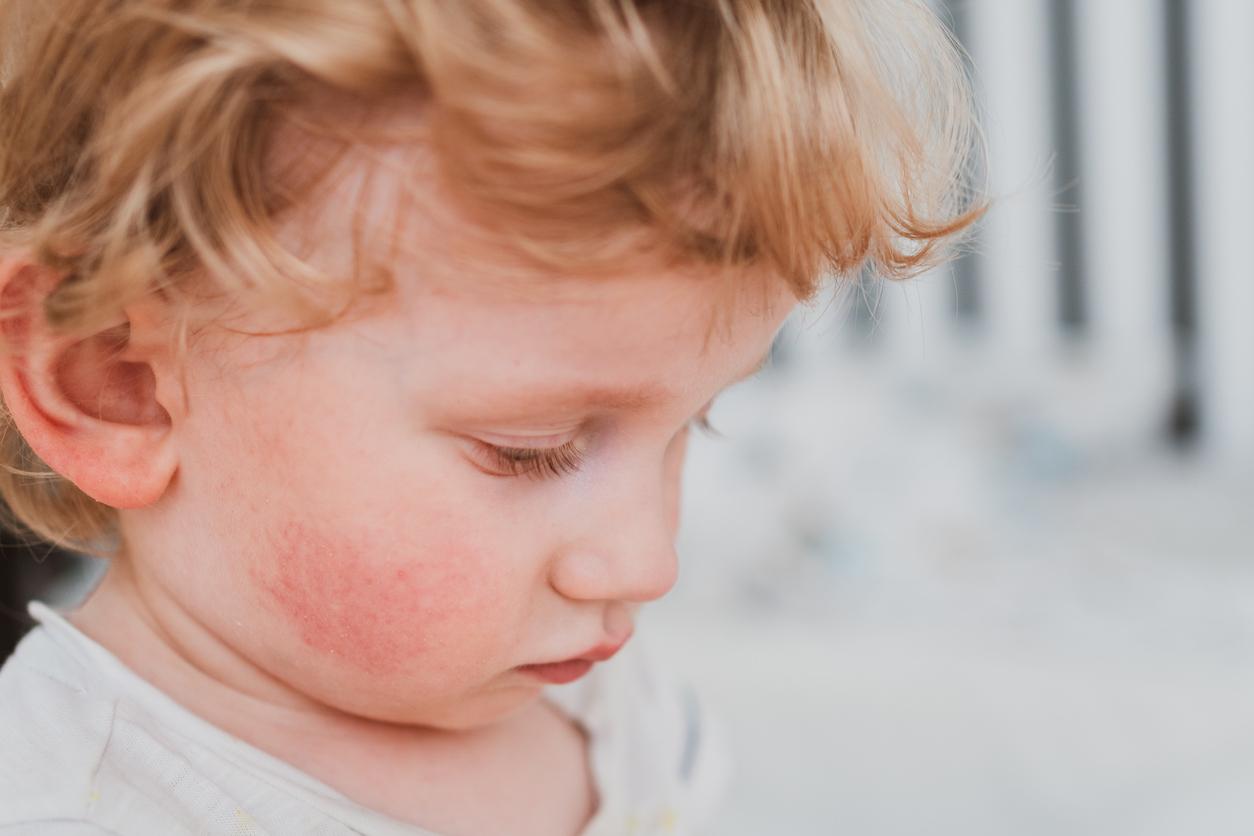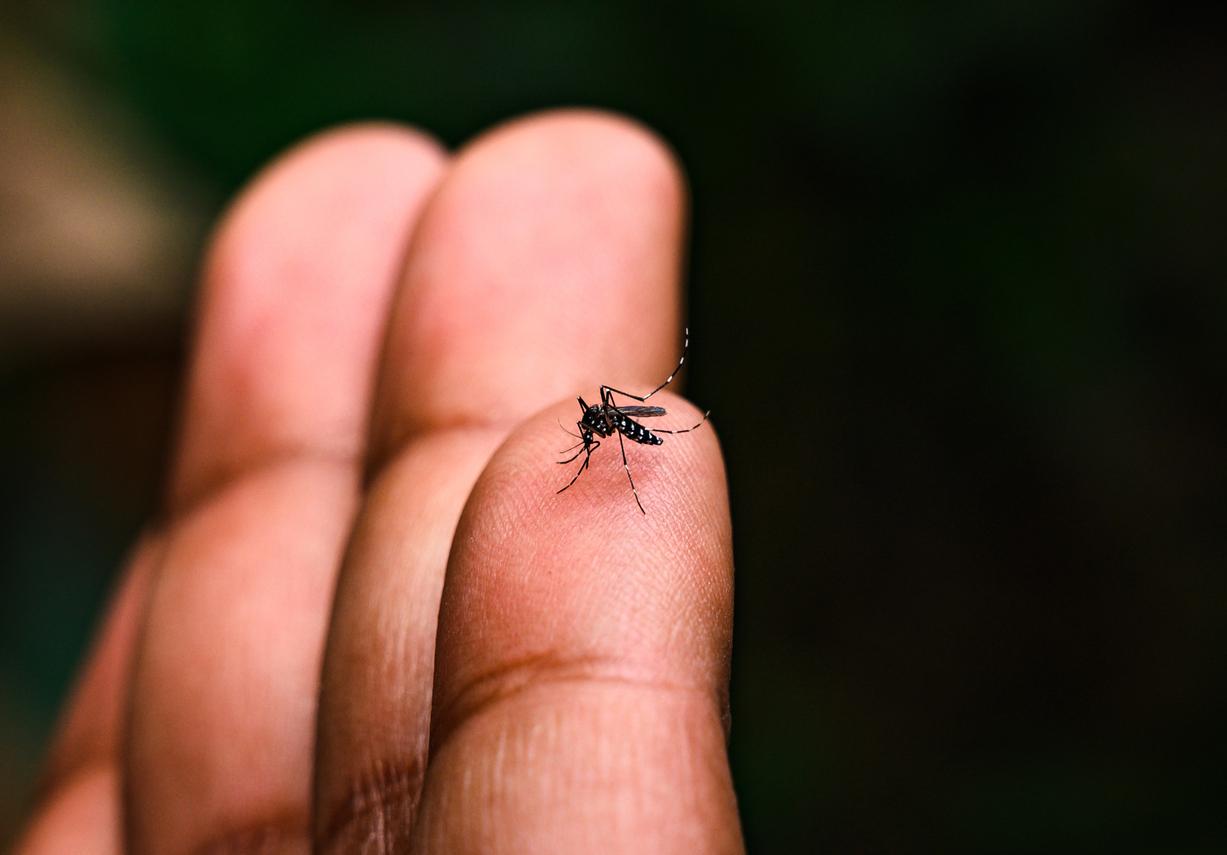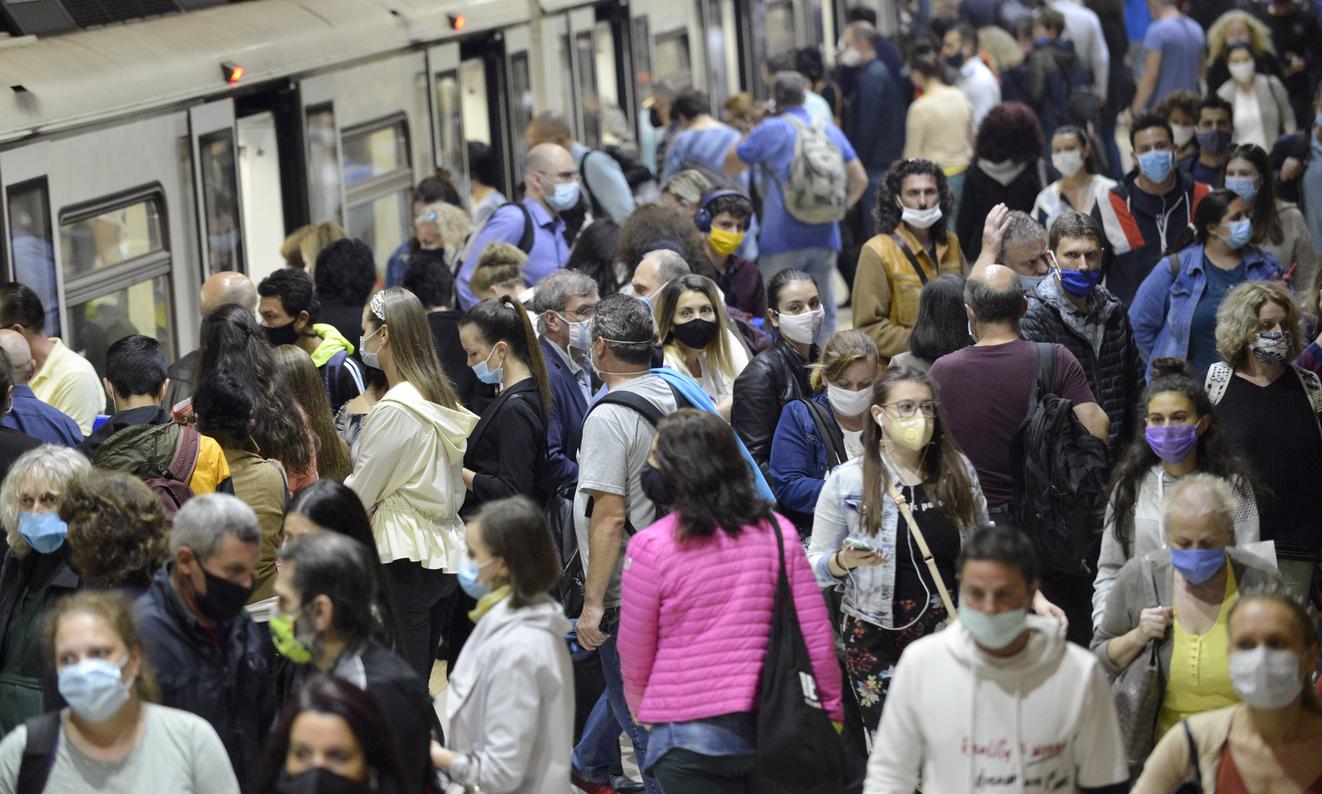The parvovirus B19 epidemic currently raging in France mainly affects children and its symptoms are mainly cutaneous.

- Parvovirus B19 infections are increasing in France.
- The disease causes skin symptoms, including redness on the cheeks.
- It can be more serious in pregnant women.
The parvovirus B19 epidemic has affected France for almost a year. “Its intensity increased in the last quarter of 2023 and it continues its rise in 2024 with a peak which has not yet been reached in March.precise Public Health France in a press release published on April 22. This virus is transmitted through the respiratory tract and mainly infects children.
How does parvovirus B19 manifest?
The first signs of parvovirus B19 infection appear after an incubation period of 4 to 21 days. These are generally so-called “non-specific” : they can resemble those of a cold, with fever, headache or a more general feeling of malaise. After about a week, the infection leaves characteristic marks on the cheeks. Sometimes nicknamed “slapped cheek disease,” it triggers a rash, similar to the marks a slap on the face might leave. Red patches can also appear on the arms, buttocks and thighs, and cause itching. “The rash and the entire illness usually lasts 5 to 10 days, indicates the MSD manual. However, the rash may recur for several weeks, triggered by sunlight, exercise, heat, fever, or emotional stress.” In some people, the disease is completely asymptomatic.
Parvovirus B19: what are the symptoms in adults?
Parvovirus B19 infection is also called “fifth disease”, because it is the fifth pathology that can trigger a rash in children, after rubella, measles, roseola and chickenpox. But it can also affect adults: generally, it then causes a syndrome.gloves and socks“, or redness on the feet and hands, with clear demarcations.
In pregnant women, the disease can be serious. It is likely to trigger fetal anemia. “Infection acquired during the first trimester can lead to fetal death or miscarriagewarns Canadian Department of Health. In the second and third trimesters, the infection can cause anemia, myocarditis and heart failure in the fetus (…). Fetal death may occur in up to 10% of infected fetuses.”
Parvovirus B19: how to protect yourself from the disease?
On the other hand, contamination with parvovirus B19 provides immunity against the virus. Thus, half of pregnant women would be immune, thanks to a previous infection, according to the MSD manual.
As with other viruses, the best way to protect yourself from parvovirus B19, which is transmitted through saliva or hands, is to apply barrier gestures, particularly if someone close to you is sick. It is therefore recommended to isolate yourself in the event of infection, to avoid infected people, to wash your hands regularly with soap and water, to cough into your elbow, etc.














